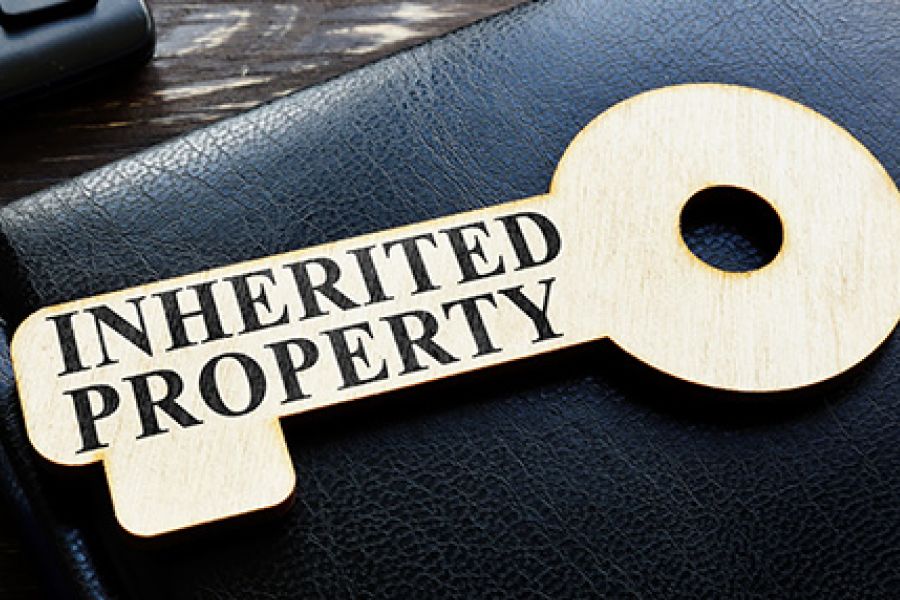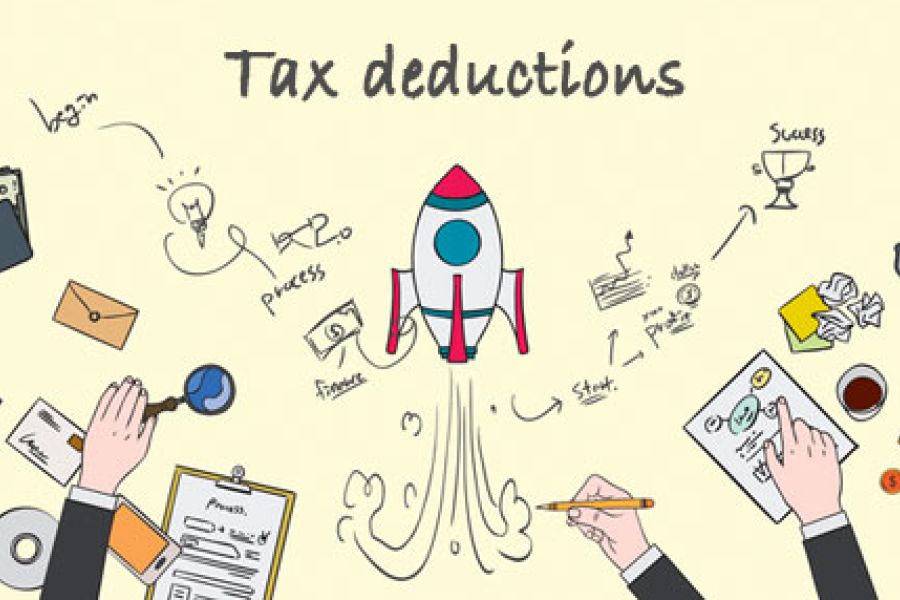Do you play a major role in a closely held corporation and sometimes spend money on corporate expenses personally? These costs may wind up being nondeductible both by an officer and the corporation unless proper steps are taken. This issue is more likely to arise in connection with a financially troubled corporation. Deductible vs. nondeductible expenses In general, you can’t deduct an expense you incur on behalf of your corporation, even if it’s a legitimate “trade or business” expense and even if the corporation is financially troubled. This is because a taxpayer can only deduct expenses that are his own. And since your corporation’s legal existence as a separate entity must be respected, the corporation’s costs aren’t yours and thus can’t be deducted even if you pay...

While Congress develops legislation that would eliminate, and/or otherwise mitigate, the current TCJA implemented state and local tax (SALT) limit on an individual taxpayer's ability to take the itemized deduction for state and local taxes, California has just passed legislation which offers a work-around that will allow many Californians to mitigate the effects of the current $10,000 federal limitation on SALT deductions. On 7/16/2021, Governor Newsom signed into law AB-150, which provides a means by which certain pass-through entities (Qualified Entities) can make an election to pay California income tax (at the entity-level) on behalf of their owners, for which their consent must be given. The benefits yielded could be substantial for pass-through entity owners for which work-around makes sense. Curiously the IRS has approved these...
If you’re planning your estate, or you’ve recently inherited assets, you may be unsure of the “cost” (or “basis”) for tax purposes. The current rules Under the current fair market value basis rules (also known as the “step-up and step-down” rules), an heir receives a basis in inherited property equal to its date-of-death value. So, for example, if your grandmother bought stock in 1935 for $500 and it’s worth $1 million at her death, the basis is stepped up to $1 million in the hands of your grandmother’s heirs — and all of that gain escapes federal income tax. The fair market value basis rules apply to inherited property that’s includible in the deceased’s gross estate, and those rules also apply to property inherited from foreign persons who...
Fraud is costly for all victimized companies, but it’s even worse in the construction sector. According to the Association of Certified Fraud Examiners’ Report to the Nations: 2020 Global Study on Occupational Fraud and Abuse, construction companies affected by fraud lose a median $200,000 per fraud incident, compared with $125,000 per incident for all organizations. Some types of fraud are more prevalent in the construction industry, particularly payroll and billing fraud. These can lead to legal liability and fines. For example, paying under-the-table cash wages to avoid paying payroll taxes could result in criminal charges and significant penalties. To prevent your managers and workers from acting illegally or unethically, tighten your internal controls. Essential controls Certain internal controls are essential — including segregation of duties. This means that...
Despite the COVID-19 pandemic, government officials are seeing a large increase in the number of new businesses being launched. From June 2020 through June 2021, the U.S. Census Bureau reports that business applications are up 18.6%. The Bureau measures this by the number of businesses applying for an Employer Identification Number. Entrepreneurs often don’t know that many of the expenses incurred by start-ups can’t be currently deducted. You should be aware that the way you handle some of your initial expenses can make a large difference in your federal tax bill. How to treat expenses for tax purposes If you’re starting or planning to launch a new business, keep these three rules in mind: Start-up costs include those incurred or paid while creating an active trade or business...
Do you have significant investment-related expenses, including the cost of subscriptions to financial services, home office expenses and clerical costs? Under current tax law, these expenses aren’t deductible through 2025 if they’re considered investment expenses for the production of income. But they’re deductible if they’re considered trade or business expenses. For years before 2018, production-of-income expenses were deductible, but they were included in miscellaneous itemized deductions, which were subject to a 2%-of-adjusted-gross-income floor. (These rules are scheduled to return after 2025.) If you do a significant amount of trading, you should know which category your investment expenses fall into, because qualifying for trade or business expense treatment is more advantageous now. In order to deduct your investment-related expenses as business expenses, you must be engaged in a...
There’s a harsh tax penalty that you could be at risk for paying personally if you own or manage a business with employees. It’s called the “Trust Fund Recovery Penalty” and it applies to the Social Security and income taxes required to be withheld by a business from its employees’ wages. Because taxes are considered property of the government, the employer holds them in “trust” on the government’s behalf until they’re paid over. The penalty is also sometimes called the “100% penalty” because the person liable and responsible for the taxes will be penalized 100% of the taxes due. Accordingly, the amounts IRS seeks when the penalty is applied are usually substantial, and IRS is aggressive in enforcing the penalty. Wide-ranging penalty The Trust Fund Recovery Penalty is...
Without trust between you and your employees, your business probably wouldn’t be very successful. Delegating responsibility, sharing ideas, working as a team — all require a certain level of trust. However, too much trust can lead to occupational fraud and conflicts of interest. To maintain the proper balance, establish a policy that outlines your disclosure expectations and require employees to follow it. Purchasing power What constitutes conflict of interest? Let’s look at a fictional example: Veronica is the manager of a manufacturing company’s purchasing department. She’s also part owner of a business that sells supplies to the manufacturer — a fact she hasn’t disclosed to her employer. And, in fact, Veronica has personally profited from her business’s lucrative long-term contract with her employer. What makes this scenario a...
According to the Federal Trade Commission, veterans lost approximately $60 million to fraud in 2020. Active-duty military personnel and their spouses and dependents also suffered big financial losses to fraud last year. In fact, in 2020, military consumers lost more than the general public to fraud — a median $600 compared to $311 for nonmilitary consumers. Here’s what you and military friends and family need to know. Beware of imposters The greatest fraud threat to this group is “imposter” fraud. In this scheme, a criminal calls, emails or texts potential victims and pretends to be working for the Veterans Administration or another government agency. Perpetrators may claim they need personal information, such as Social Security or bank account numbers, to authorize the release of benefits. Instead, they...
Are you eligible to take the deduction for qualified business income (QBI)? Here are 10 facts about this valuable tax break, referred to as the pass-through deduction, QBI deduction or §199A deduction. It’s available to owners of sole proprietorships, single member limited liability companies (LLCs), partnerships and S corporations. It may also be claimed by trusts and estates. The deduction is intended to reduce the tax rate on QBI to a rate that’s closer to the corporate tax rate. It’s taken “below the line.” That means it reduces your taxable income but not your adjusted gross income. But it’s available regardless of whether you itemize deductions or take the standard deduction. The deduction has two components: 20% of QBI from a domestic business operated as...
- 1
- 2
- 3
- 4
- 5
- 6
- 7
- 8
- 9
- 10
- 11
- 12
- 13
- 14
- 15
- 16
- 17
- 18
- 19
- 20
- 21
- 22
- 23
- 24
- 25
- 26
- 27
- 28
- 29
- 30
- 31
- 32
- 33
- 34
- 35
- 36
- 37
- 38
- 39
- 40
- 41
- 42
- 43
- 44
- 45
- 46
- 47
- 48
- 49
- 50
- 51
- 52
- 53
- 54
- 55
- 56
- 57
- 58
- 59
- 60
- 61
- 62
- 63
- 64
- 65
- 66
- 67
- 68
- 69
- 70
- 71
- 72
- 73
- 74
- 75
- 76
- 77
- 78
- 79
- 80
- 81
- 82
- 83
- 84
- 85
- 86
- 87
- 88
- 89
- 90
- 91
- 92
- 93
- 94
- 95
- 96
- 97
- 98
- 99
- 100
- 101
- 102
- 103
- 104
- 105
- 106
- 107
- 108
- 109
- 110
- 111
- 112
- 113
- 114
- 115
- 116
- 117
- 118
- 119
- 120
- 121
- 122
- 123
- 124
- 125
- 126
- 127
- 128
- 129
- 130
- 131
- 132
- 133
- 134
- 135
- 136
- 137
- 138
- 139
- 140
- 141
- 142
- 143
- 144
- 145
- 146
- 147
- 148
- 149
- 150











